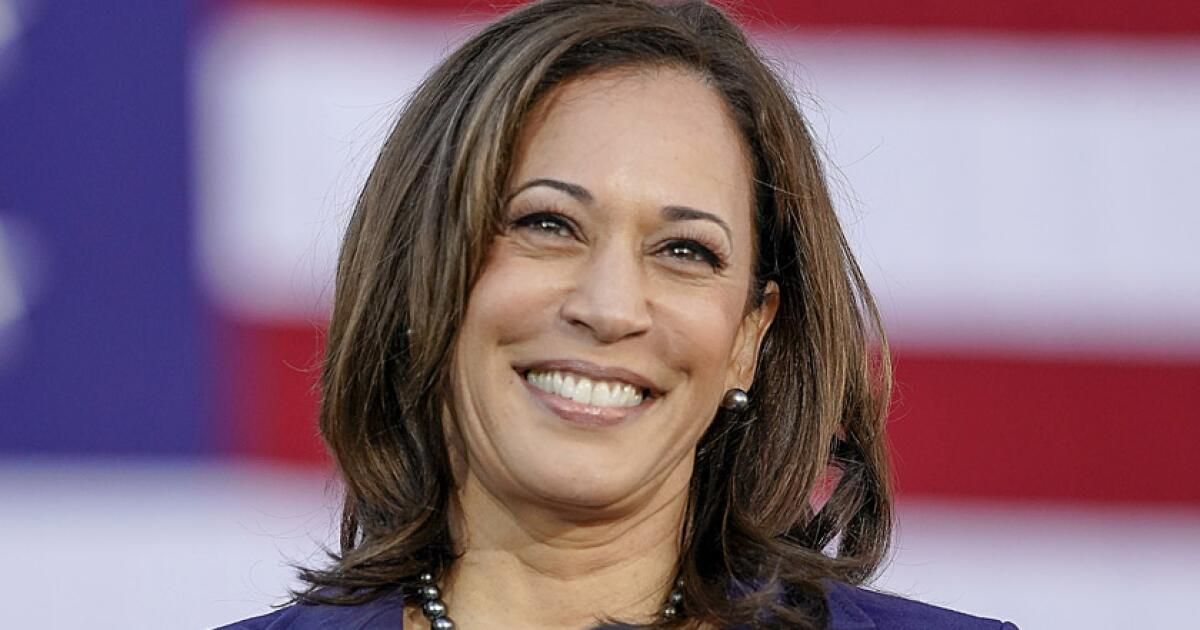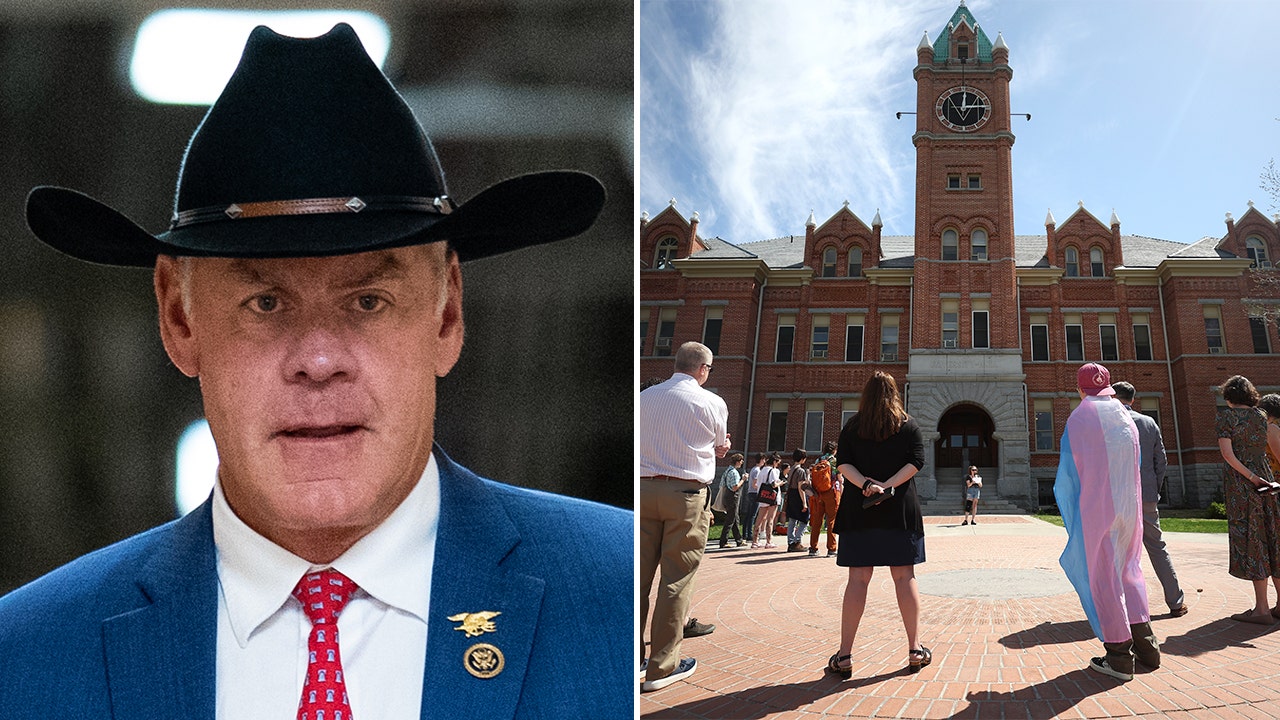It's been a week since President Biden's disastrous debate performance, and his political fortunes only seem to be getting worse by the day.
His poll numbers are plummeting, Donald Trump is gloating and Democrats are in a full-blown panic about the future, with some feeling misled by the president's advisers and angry that his inner circle appears to be blaming everyone but themselves for last week's debacle.
Now it all comes down to two questions: Will Biden drop out of the race? And who is in prime position to replace him?
The answer to the second question should be obvious: the vice president, of course.
Vice President Kamala Harris speaks at the White House in March about criminal justice reform.
(Kent Nishimura / AFP / Getty Images)
Kamala Harris was elected by the people as the official replacement for the 81-year-old president in case he was unable to fulfill his duties, so it stands to reason that she is next in line, just as Biden was for Barack Obama. Harris served in the U.S. Senate, was attorney general of California and, before that, of San Francisco. She clearly has the experience. As for her debate skills, she is a former prosecutor. Trump is a convicted felon. What more could you ask for in this cage fight of an election?
Yet Harris, 59, is not a surefire candidate to replace Biden. Discussions among pundits and laypeople about the possibility of her being chosen as vice president typically begin from a place of reticence, fueled by a common, unfounded belief that she is a long shot and unpopular. Then it moves on to longer conversations about Gavin Newsom. Or Gretchen Whitmore. Or Josh Shapiro.
I honestly don’t know if Harris can win in November, or if she’s really the best candidate to steer this country away from what looks like certain doom if Trump wins. What I do know is that Harris faces a higher bar because of her gender and race. The outright rejection of her idea that she could be a serious Biden replacement is irresponsible, not to mention sexist and racist, and highlights the double standard that women and people of color face, especially those at the top of their game.
The flip side of that coin is the recognition that America may not be ready for a female president, let alone a woman of color. Backing Harris means believing that the electorate is capable of challenging centuries of tradition and prejudice, and that is a risky move in an election where the stakes are so high.
But it may not be as risky as it seems. A new CNN post-debate poll of registered voters shows that in a race against Trump, Harris would come in first place. above theoretical candidates Newsom, Shapiro, Whitmer and Pete Buttigieg, and far above Biden.
Despite evidence showing she is a viable option, Harris still suffers from a lingering criticism that emerged during the 2019 Democratic primaries. She was often portrayed in the media as aloof and unlikable.
Call it Hillary Clinton’s dilemma. Powerful women have to walk an impossible line, especially in roles that deal with the public. Be authoritative, but not too demanding. Don’t come across as too emotional, but don’t come across as cold, either. Don’t come across as too inflexible, but don’t come across as pusillanimous either (the “Barbie” monologue comes to mind). Walk the tightrope between strong leadership and likability (in heels), because it’s never enough to be qualified and competent.
Democrats and swing voters will never get it all in one package. Harris certainly doesn't seem very comfortable at inauguration ceremonies, but she's right at home grilling a sweaty, nervous Mark Zuckerberg or a Judge Brett M. Kavanaugh who doesn't know what to say. And what we need more than anything right now is a fighter.
Harris is a formidable debater. Recall the 2019 Democratic primary debate, when she course-corrected Biden on his desegregation record. In a debate the following year against then-Vice President Mike Pence, she deftly called out his hypocrisy when she accused Democrats of court-packing: “Do you know that of the 50 people that President Trump appointed to the appeals court with lifetime appointments, not one of them is black?” “This is what they’ve been doing. If they want to talk about court-packing, let’s have that discussion.” Bam!
As a member of the Senate Judiciary Committee, she questioned Trump’s then-Supreme Court nominee Kavanaugh during a 2018 confirmation hearing about protecting reproductive rights. “Can you think of any law that gives the government the power to make decisions about the male body?” she asked.
Kavanaugh paused before replying: “I'd be happy to take a more specific question.”
“Men versus women,” Harris replied. After some back-and-forth, Kavanaugh nodded: “I’m not thinking of either right now, Senator.”
Trump later complained about how unfair she had been: “It was so nasty, it was a horrible thing … the way she treated the current Judge Kavanaugh, and I won’t soon forget it.” You can bet he would rather face anyone other than that “nasty woman.”
It’s more than fair to talk about Harris’s chance of being elected. She deserves to be scrutinized, like all the other candidates being mentioned as possible candidates if Biden drops out of the race. But simply assuming she’s not the right candidate without a deeper exploration of her strengths and weaknesses is unfair to someone as competent as Harris.












